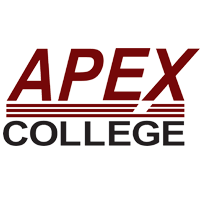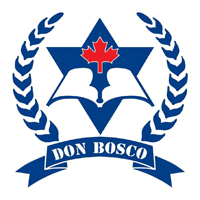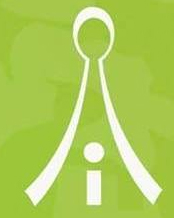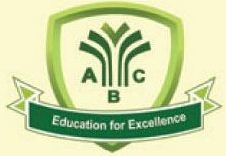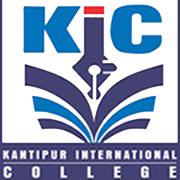Overview
Master of Business Administration in Finance (MBA-Finance) at Shanker Dev Campus (affiliated with TU)
The Master of Business Administration in Finance (MBA-Finance) Program at Shanker Dev Campus, affiliated with Tribhuvan University, is a rigorous two-year, full-time academic program designed to encourage students with specialized knowledge and practical skills in financial management.
The curriculum focuses on developing analytical, decision-making, and leadership capabilities essential for managing financial institutions and corporate environments in today’s dynamic, technology-driven world. The program emphasizes ethical practices, global perspectives, and sustainable financial solutions.
Program Duration
The MBA-Finance program is two years and divided into four semesters. Students complete 60 credit hours of coursework, which includes rising core courses, electives, concentration areas, and a graduate research project. This comprehensive structure ensures students are well-prepared for advanced managerial and financial roles.
Eligibility Criteria
To enroll in the MBA-Finance program:
-
Academic Qualification: A Bachelor’s degree in any discipline with a minimum CGPA of 2.0 (semester system) or 45% (annual system).
-
Additional Requirements: Applicants must pass the entrance test conducted by the Faculty of Management (FOM) at Tribhuvan University.
Admission Process
The admission process includes four stages:
-
Written Test:
-
Based on the GMAT format.
-
Assesses verbal, quantitative, and analytical reasoning skills.
-
Group Discussion:
-
Evaluates leadership, communication, and logical reasoning.
-
Individual Presentation:
-
Applicants present on a given topic to demonstrate analytical and communication skills.
-
Personal Interview:
-
The emphasis is on motivation, skills, and preparedness for the program.
Final selection is based on cumulative performance across all stages.
Course Outline
The MBA-Finance curriculum integrates foundation, core, concentration, capstone, and elective courses. The detailed semester-wise structure is as follows:
Semester I:
-
Economic Analysis for Business
-
Applied Business Statistics
-
Managerial Communication
-
Financial Management and Financial System
-
Marketing Management
-
Global Financial Markets
-
Contemporary Issues and Concepts in Management: Seminar
Semester II:
-
Human Resource Management and Organizational Behavior
-
Accounting for Managers
-
Commercial Bank Management
-
Insurance and Risk Management
-
Corporate Finance
-
Entrepreneurship and New Venture Creation
-
E-Business: Practicum
-
Independent Study in Finance
Semester III:
-
Research for Managers
-
Behavioral Finance
-
Financial Markets and Institutions
-
Elective I
-
Concentration I
-
Concentration II
-
Experiential Learning Project
-
Research in Finance Seminar
Semester IV:
-
Business Environment and Strategic Management
-
Service Operation Management
-
Elective II
-
Concentration III
-
Concentration IV
-
E-Finance: Graduate Seminar
-
Graduate Research Project (GRP)
Subjects Offered
Core Courses:
-
Economic Analysis for Business
-
Financial Management
-
Human Resource Management
-
Marketing Management
-
Corporate Finance
Electives:
-
Financial Derivatives
-
Investment Banking
-
Risk Management
-
Strategic Financial Planning
Concentrations:
-
Financial Markets and Institutions
-
Behavioral Finance
-
Commercial Bank Management
-
Insurance and Risk Management
Program Objectives
-
Develop finance professionals with global perspectives and advanced analytical skills.
-
Prepare students to manage and lead financial institutions and corporate organizations effectively.
-
Foster entrepreneurial abilities for creating sustainable financial solutions.
-
Enhance research capabilities for solving real-world financial challenges.
-
Promote ethical financial management practices.
Teaching Methodology
The MBA-Finance program utilizes experiential learning, incorporating interactive lectures, case studies, seminars, and workshops. Faculty members emphasize practical applications through simulations, group projects, and internships. This holistic teaching methodology ensures students can apply theoretical knowledge in real-world scenarios.
Learning Outcomes
Graduates of the MBA-Finance program will:
-
Demonstrate expertise in financial management principles and practices.
-
Apply analytical tools to evaluate financial risks and opportunities.
-
Exhibit leadership and decision-making skills in complex business environments.
-
Conduct research to address financial challenges and contribute to knowledge.
-
Understand the global financial landscape and its implications for local markets.
-
Uphold ethical standards in financial and managerial roles.
Future Scope
The MBA-Finance program prepares students for leadership roles in financial institutions, corporate finance, and consulting firms. Graduates can pursue careers in banking, investment management, and financial planning. Additionally, the program lays a strong foundation for doctoral studies or professional certifications like CFA or CPA.
Career Prospects
MBA-Finance graduates are highly sought after in banking, insurance, investment firms, and multinational corporations. Career pathways include roles such as:
-
Financial Analyst
-
Investment Banker
-
Portfolio Manager
-
Risk Manager
-
Corporate Finance Officer
-
Financial Consultant
Scholarship Opportunities
Shanker Dev Campus offers merit-based scholarships and financial support to deserving students. Scholarships are provided based on academic performance, entrance test scores, and socio-economic considerations.
Fee Structure
The Shanker Dev Campus Admission Committee determines the fee structure for the MBA-Finance program, ensuring affordability without compromising quality.
Extracurricular and Co-Curricular Activities
Students enhance their practical knowledge by participating in finance-related workshops, conferences, and competitions. Networking events, industry visits, and leadership training programs are integral to the MBA finance experience.
Real-World Application
The program incorporates internships, live projects, and case studies, allowing students to apply classroom learning to real-world business problems. This practical exposure prepares them for dynamic roles in the financial sector.
Sustainability and Social Impact
The MBA-Finance program emphasizes sustainable financial practices and social responsibility. Students learn to balance profitability with ethical decision-making, contributing to societal and environmental well-being.
Skill Development
Students develop critical financial analysis, strategic planning, and risk management skills. The program also focuses on enhancing soft skills such as communication, teamwork, and leadership.
Global Perspective
The curriculum integrates international finance concepts, preparing students to navigate global markets. Graduates gain insights into cross-border financial practices and emerging global trends.
Facilities and Support
Shanker Dev Campus offers state-of-the-art facilities, including advanced computer labs, a well-stocked library, and academic counseling services. Faculty members provide personalized support to ensure student success.
Why Choose the MBA-Finance Program?
The MBA-Finance program stands out for its comprehensive curriculum, experienced faculty, and practical learning opportunities. It equips students with the skills and knowledge to excel in competitive financial environments, fostering leadership and innovation.
Is the MBA-Finance Program Right for You?
The MBA-Finance program is ideal for those passionate about finance and aspiring to lead in the financial sector. It caters to individuals seeking analytical expertise, strategic thinking, and ethical financial management.
What is the Future of the MBA Finance Program?
As global financial markets evolve, the MBA-Finance program will continue to adapt, incorporating advancements in fintech, sustainability, and data-driven decision-making. Graduates will remain at the forefront of innovation, enabling growth and transformation in the financial sector.
How to Improve Your Study of Finance Management Education?
To excel in finance management, stay updated on market trends, actively participate in discussions, and engage with real-world financial tools. Develop strong analytical skills through case studies and internships. Networking with industry professionals and pursuing certifications like CFA can further enhance career prospects.
Conclusion
The MBA-Finance program at Shanker Dev Campus provides a robust platform for aspiring financial leaders. By focusing on practical learning, global perspectives, and ethical practices, the program enables graduates to excel in diverse financial roles. By fostering innovation and critical thinking, it prepares students to make meaningful contributions to the financial sector and society at large.
Contact Shanker Dev Campus's administrative office for detailed information on the MBA-Finance course, including fees, scholarships, facilities, counseling, eligibility criteria, etc.


